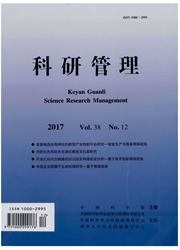

 中文摘要:
中文摘要:
基于效率工资理论建立的不完全信息动态博弈模型及运用上海1446份调查样本的实证分析表明:工作生活环境、个性特征、工作类型、工资与福利、管理制度和精神生活等6个因素对农民工务工满意度有显著影响。其中,工资与福利、精神生活和个性特征是影响农民工务工满意度的3大核心因素。研究同时发现:工资收入等经济因素是影响农民工务工满意度的核心因素,但其精神需求显著增强;农民工对现代企业管理制度尚有一定的不适应性,且对劳动保护、劳动合同、工作福利等因素缺乏充分关注。本研究在微观上对于企业改进农民工管理,在宏观上对于揭示"民工荒"的成因,都具有一定的借鉴意义。
 英文摘要:
英文摘要:
A model of repeated dynamic games with incomplete information was established to study the best decisions of rural migrant workers and business owners. Then,based on 1446 survey samples in Shanghai,the paper employs the emprise analysis to find out thatworking and living environment,personality characteristics,work types,salary and welfare,management system and spiritual life have significant effects on job satisfaction of rural migrant workers in China,and salary and welfare,personality characteristics and spiritual life are core factors. The study also indicates that,at present,factors of job satisfaction of migrant workers in towns are not only material factors such as wages,but also spiritual factors such as urban adaptability. In comparison,the material factor is more significant than the spiritual factor. At the same time,migrant workers still have not certain adaptability for the modern enterprise management system,and they do not pay enough attention to labor protection,labor contract and work welfare. The research is important for enterprises to improve the management of rural migrant worker and reveal the causes of the "Labor Shortage".
 同期刊论文项目
同期刊论文项目
 同项目期刊论文
同项目期刊论文
 期刊信息
期刊信息
